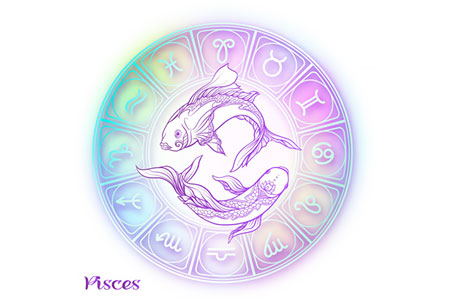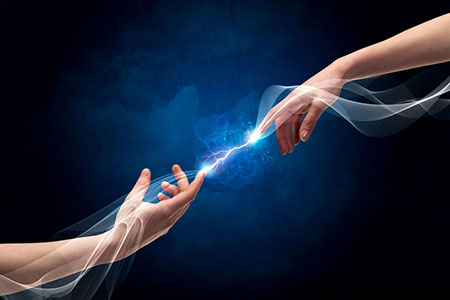highly sensitive person
Guidelines For The Anxious Clairsentient
 Anxiety is high for many people in the world right now. This is especially true if you are a clairsentient. Clairsentients have the ability to detect and feel energies from those around them, as well as their environment.
Anxiety is high for many people in the world right now. This is especially true if you are a clairsentient. Clairsentients have the ability to detect and feel energies from those around them, as well as their environment.
If you are a clairsentient, you might be feeling lately as if the world is falling apart. The good news is, there is hope – both for the future of our world, as well as the anxieties you have been experiencing.
Clairsentients experience incoming energies on all fronts. Only you have the power to determine which energies will affect you, and how much. Learning to control how much of your own energies you project into the world is also crucial.
Many clairsentients, who have practiced for years, report that they are able to be as visible or invisible as they choose to be. Imagine whatever works best as a powerful visual metaphor for you to create psychic protection around you: a force field, suit of armor, or a shield of light, are all good shielding visualizations.
When was the last time you took a vacation? If you’re like most people, it’s probably been a while. The concept of a ‘staycation’ is perfect for the stressed-out clairsentient. Really focusing on your own needs is okay and you don’t need to feel guilty. You can also use this time to discover more about your own aura and chakras, and make them stronger and healthier. If you’re the outdoorsy type, a camping trip or day hike might be just what you need to breathe, reconnect with the earth, and shrug off the negative energies that have built up.
The Need For Empath Self-Care
 In times of great stress an empath may neglect their own needs in favor of others, and start to lose the unique perspective they bring to the world.
In times of great stress an empath may neglect their own needs in favor of others, and start to lose the unique perspective they bring to the world.
Since most empaths, by their very nature, want to help others, finding a balance between using their gifts, while practicing self-care, can be tricky. Simply put, it’s easy in these times for empathic people to become overwhelmed.
Empaths feel the energies of the world much stronger than others, and can pick up on the subtle changes in the emotions and intentions of those around them. The empath serves as both a mirror and a prism to the world and its energies. Being an empath feels as if your ‘personal filter’ has been turned off, and naturally, there are many things in our noisy, hectic world that can trigger empaths.
Whether it be the chaos of others arguing or fighting; the feeling of getting lost in a crowd; the sense that others are being phony or inauthentic; or just too much on one’s emotional plate all at once; the empath may begin to withdraw, or even shut off from the rest of the world, when it all becomes too much.
Think of an empath’s ability to pick up on energies like a motion-alarm system which is constantly being tripped by any form of movement or activity. In this case the motions are the energies, emotions, and forces which shape our world. The empath has to deal with the stresses of this constant barrage.
Not only is the empath surrounded in modern society by constant incoming sensory stimuli: flickering images, flashing lights, loud music, conversations, and ambient noise, but also moving in though an ocean of all kinds of good and bad energy. Finding time and space to shut off all the noise, and block out all the negative energies, needs to be part of an empath’s daily self-care routine.
Stay In The Light
 During these challenging times, it is essential to stay in the light. It protects your emotional, spiritual, mental and physical health. How do you ‘stay in the light?’ You achieve it by maintaining a raised energy vibration in a time of extreme darkness. It means you don’t get sucked into other people’s drama, darkness, fear and toxicity. You don’t allow yourself to get weighed down by the negativity in the world around you.
During these challenging times, it is essential to stay in the light. It protects your emotional, spiritual, mental and physical health. How do you ‘stay in the light?’ You achieve it by maintaining a raised energy vibration in a time of extreme darkness. It means you don’t get sucked into other people’s drama, darkness, fear and toxicity. You don’t allow yourself to get weighed down by the negativity in the world around you.
Staying in the light doesn’t mean you don’t have an opinion or strong personal views, or that you are not aware, supportive and caring, or that you don’t get involved in the world around you when it truly matters. It simply means you always take care of yourself, while you are doing whatever it is that you need to do every day. Staying in the light is about making self-care a priority.
Staying in the light is about psychic shielding and setting boundaries where and when necessary. For example, avoiding toxic people and environments is one of the best things you can do to stay in the light. You have no obligation to tolerate and accommodate toxic people and energy thieves!
If you work with toxic people, don’t listen to the office gossip and don’t get sucked into their negative world. Also, don’t show them that they may be upsetting, or hurting you. Take a deep breath, call on your inner strength, and simply smile. Own your personal power – you are much stronger than you may realize.
Stay away from social media, if you are easily overwhelmed by negativity. For the first time in human history, we now have the technology to instantly access the opinions, fears, false beliefs and negative experiences of every human being who has access to a keyboard or smart phone. We are confronted daily with the pain, hysterics and drama of thousands of people, all at once!
Making The Most Of Pisces Season
 Today we are entering Pisces season. The Sun moves into the zodiac sign of Pisces every year from February 18th through March 20th, and activates our compassion, intuition and imagination. This is a cycle where we are able to get in touch with our deeper emotions and heal any issues that might be weighing us down.
Today we are entering Pisces season. The Sun moves into the zodiac sign of Pisces every year from February 18th through March 20th, and activates our compassion, intuition and imagination. This is a cycle where we are able to get in touch with our deeper emotions and heal any issues that might be weighing us down.
Pisces is a mutable, water sign, which allows us to be more flexible and go with the flow of the Universe. Now is not the best time for planning and taking action, but great for reflection, journaling, artistic expression and dreaming.
Technically, Pisces is the last sign of the zodiac and shows us the accumulation of what we have learned in the past year. It also helps us release in order to prepare for the next cycle in Aries.
The negative aspects of Pisces brings up addiction issues, escapism, delusions, being overly sensitive and falling into a victim mentality. It can seem like we are swimming in circles in this period, so acknowledging our direction and any imbalances are vital.
The Sun in Pisces is also a good time to get in touch with our bodies, and to detoxify with lots of water, fresh whole foods, and upgrading our self-care routine. If you are unsure of where to start with exercise, more gentle movement activities, like Tai Chi, Yoga, Pilates or swimming in a body of water, will help create re-connection. It is all about taking your time and accepting where you are in your life.
Psychic Connections
 I first noticed my psychic sensitivity when I was a little girl, probably as young as three or four years old. I remember getting sick and looking at individuals, that were either family or friends, out of the corner of my eye with a knowingness that my illness was coming from them – although I experienced the symptoms first. I remember cringing at the knowledge that in a day or two they wouldn’t be feeling well. Yet, for some reason, that I don’t quite understand to this day, I didn’t feel I could tell anyone.
I first noticed my psychic sensitivity when I was a little girl, probably as young as three or four years old. I remember getting sick and looking at individuals, that were either family or friends, out of the corner of my eye with a knowingness that my illness was coming from them – although I experienced the symptoms first. I remember cringing at the knowledge that in a day or two they wouldn’t be feeling well. Yet, for some reason, that I don’t quite understand to this day, I didn’t feel I could tell anyone.
I was raised by my grandparents on a farm that was five miles out in the country. We were as close as a family could be. In fact, I feel incredibly fortunate to have experienced such a loving, nurturing childhood. Yet, although I felt I could tell my grandparents anything, and they would be supportive, for some strange reason I felt I couldn’t tell them about my psychic awareness. Perhaps, it was because no one talked about unusual things like that, so I was embarrassed, not realizing at the time that it was indeed a gift. Yet, I don’t recall ever feeling frightened or anxious. Mostly, it simply felt confusing.
As the years went by, more and more incidences happened to me that didn’t seem to be regular occurrences for others, but I still wasn’t quite sure. I remember thinking that perhaps they were having the same kinds of experiences, but were also not comfortable with telling others, just like me. In any case, again, I felt reticent to mention it to anyone.
Give Your Nervous System A Break
 Given the fast pace of today’s world, the expectations of others, as well as the pressure we place on ourselves, giving our nervous system a break, and understanding the ways to support and strengthen this system, is physically, emotionally and spiritually important.
Given the fast pace of today’s world, the expectations of others, as well as the pressure we place on ourselves, giving our nervous system a break, and understanding the ways to support and strengthen this system, is physically, emotionally and spiritually important.
Stress is something we all experience – some more than others. Those of us who are empathic, psychic, or highly sensitive, can experience stress more intensely with more profound consequences.
The stress that empaths, psychics and sensitives experience may be tied to that of another person, or situation, as well as their own stress. This ability to experience the emotions, thoughts and feelings of others can create a rebound effect of high stress.
Racing heart, anxiety, quickening of breathing, tensing of muscles, sweating, feeling faint or nauseous, are all signs of a nervous system in flight mode. Add in the compounded impact of experiencing this in another person, on top of yourself, and your nervous system is off and running, literally.
The body’s ‘fight or flight response’ is controlled by the sympathetic nervous system, which is one part of the autonomic nervous system. The other part is the parasympathetic nervous system, which works to relax and slow down the body’s response.
The sympathetic system acts like an accelerator, to ‘rev up’ our body and make us run, to remove us from danger. The parasympathetic system acts like the ‘brake,’ slowing us down when danger isn’t present.
The Scientific Evidence For Psychic Empath Phenomena
 The extra-sensory, paranormal ability of clairempathy or ‘psychic empathy’ is not yet recognized in mainstream science, but that does not make it any less bona fide for the highly sensitive people who experience these empathic psychic phenomena as a daily reality. Despite the lack of academic interest, and contrary to widespread skepticism, there is a growing body of anecdotal evidence and a significant collection of scientific data steadily gaining momentum to offer intriguing clues to the psycho-physiological experiences of empaths, intuitives, sensitives and psychics all over the world.
The extra-sensory, paranormal ability of clairempathy or ‘psychic empathy’ is not yet recognized in mainstream science, but that does not make it any less bona fide for the highly sensitive people who experience these empathic psychic phenomena as a daily reality. Despite the lack of academic interest, and contrary to widespread skepticism, there is a growing body of anecdotal evidence and a significant collection of scientific data steadily gaining momentum to offer intriguing clues to the psycho-physiological experiences of empaths, intuitives, sensitives and psychics all over the world.
I am a clairempath. I feel what other people feel. I experience inexplicable extra-sensory perceptions of other people’s emotions, mood states, subconscious motivations, and even their physical or medical symptoms. It happens without me having to see them, or knowing anything about them. Touching others, or being in close proximity to them, elicits more intense empathic perceptions, but it is not necessary for me to have direct contact or personal interaction with others in order to have a direct experience of their underlying feelings and intentions.
Empathic psychic ability or clairempathy is a clairsentient psychic ability. Clairsentience refers to the ‘clear’ sensing or feeling of extra-sensory information. In my experience this process of sensing is due to some form of energy transfer between me and other people. There is an energy interaction or energy exchange that takes place between me and them. I experience these vivid psychic or paranormal impressions of other’s energy on a daily basis, and I utilize it to the best of my ability in my work as a professional psychic medium, consulting with clients all over the world.
The term ‘sentience’ refers to awareness, or consciousness of a sensation or a feeling. Sentience does not involve thought, or logic, or reason. It involves spontaneous feeling or sensing, instead of rational thinking or deduction. Clairempathy therefore is an energy perception, or sentient response, that has no rational or logical origin. It is a form of perception which is experienced as a tactile, physical sensation… or an emotional feeling. My clairsentient or clairempathic experiences are uncanny and very real, as many of my friends, family and clients will attest.